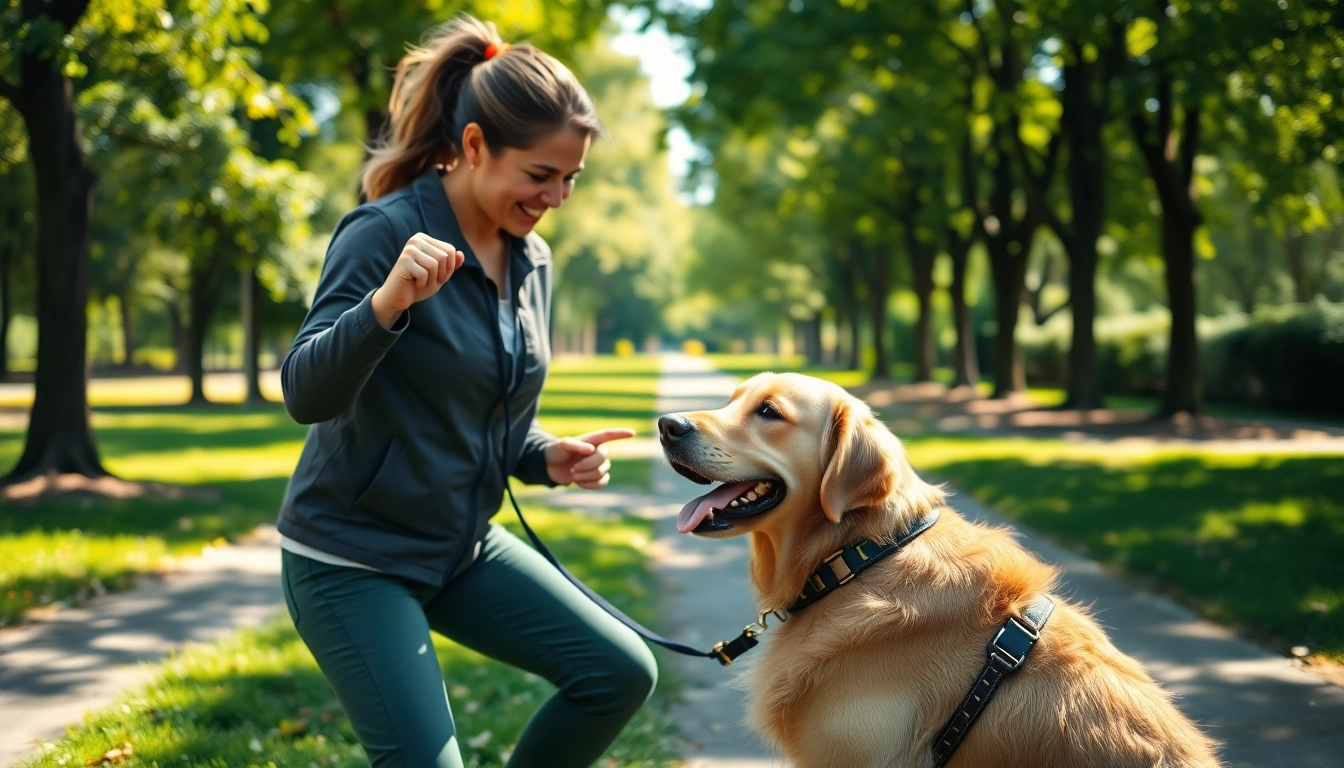What Are Psych Service Dogs?
Definition and Purpose
Psych service dogs, formally known as psychiatric service dogs (PSDs), are trained canines that assist individuals who struggle with mental health disorders. These dogs play a crucial role in alleviating symptoms associated with conditions such as anxiety, depression, post-traumatic stress disorder (PTSD), and other psychological issues. Unlike regular pets, psych service dogs undergo rigorous training to provide specific support tailored to the needs of their handlers, empowering them to lead more fulfilling lives.
The main purpose of psych service dogs is to perform tasks that mitigate their handler’s disabilities. This might include providing comfort during panic attacks, alerting their handler to anxiety or distress signals, or even grounding them in moments of dissociation. Many individuals find these dogs not only a source of emotional support but also a crucial partner in navigating day-to-day challenges. For those considering the incorporation of such assistance into their lives, psych service dogs can transform the way they experience and manage their mental health.
Distinctions from Emotional Support Animals
It’s essential to understand the differences between psych service dogs and emotional support animals (ESAs). While both provide emotional comfort, the key difference lies in training and the scope of their roles. Emotional support animals may provide companionship and emotional relief but are not trained to perform specific tasks that alleviate a disability. In contrast, psych service dogs are extensively trained to perform tasks specific to the mental health needs of their handlers.
For instance, a psych service dog may be trained to interrupt self-harming behaviors, retrieve medication, or respond to their handler’s panic episodes by applying pressure or providing tactile comfort. This distinction is crucial when considering the legal rights associated with service dogs, as they are covered under the Americans with Disabilities Act (ADA), whereas ESAs do not have the same protections in public spaces.
Common Breeds Used for Psych Service Dogs
Various dog breeds possess the qualities necessary to become effective psych service dogs. While any dog can potentially be trained for this role, certain breeds are more commonly chosen due to their temperament, intelligence, and sociability. Some of the most popular breeds include:
- Golden Retrievers: Known for their gentle temperament, Golden Retrievers are sociable and eager to please, making them excellent candidates for service work.
- Labs: Labrador Retrievers are adaptable, friendly, and trainable, often used in various service capacities.
- German Shepherds: With their intelligence and loyalty, German Shepherds are commonly trained for service work and are known for their protective instincts.
- Poodles: Poodles are highly intelligent and hypoallergenic, making them suitable for various situations and handlers.
- Boxers: Boxers are playful, protective, and loyal, often used as service dogs for their versatile nature.
The choice of breed often depends on the specific needs of the handler, such as size, energy level, and temperament. Each breed brings unique characteristics that can enhance the companionship and assistance that a psych service dog provides.
Benefits of Psych Service Dogs
Support for Anxiety and Depression
One of the most significant benefits of having a psych service dog is the impact they have on managing symptoms of anxiety and depression. Many individuals report a reduction in anxiety levels when accompanied by their trained dogs. The presence of a service dog can create a sense of security and familiarity, which can be particularly beneficial during distressing situations.
Psych service dogs can also be trained to recognize signs of anxiety or depression in their handlers. They may respond by providing comforting behaviors, such as sitting close by, nudging their owner, or even performing specific tasks like deep pressure therapy to ease anxiety attacks. This tailored support can significantly go a long way in improving the emotional well-being and overall mental health of individuals.
Assistance with PTSD Symptoms
Individuals diagnosed with PTSD can find immense relief in the companionship of psych service dogs. Tasks that service dogs are trained to perform for PTSD sufferers include interrupting nightmares, reminding their handlers to take medications, and even establishing a safe space when out in public. These actions can help mitigate the intensity of PTSD symptoms and provide a sense of security.
The bond formed between a handler and their psych service dog can foster feelings of empowerment and agency, as the handler learns to trust their dog to alert them to dangerous situations or help them navigate public spaces. This support system often leads to improved coping mechanisms and a better quality of life.
Impact on Quality of Life
Beyond managing specific symptoms of mental health conditions, psych service dogs significantly enhance their handlers’ overall quality of life. The companionship of a service dog can reduce feelings of isolation, encouraging individuals to engage more with their community and pursue activities they may have previously found challenging.
The routine of caring for a service dog also provides structure and purpose, helping individuals set daily goals. The process of grooming, exercising, and training their dog can create a meaningful daily rhythm and motivate handlers to stay engaged and active. This engagement often translates to broader social interactions, helping to improve relationships and mental health overall.
Training Psych Service Dogs
Essential Skills and Tasks
The training of psych service dogs encompasses a variety of essential skills designed to assist their handlers effectively. These tasks are determined based on individual needs and may include:
- Deep Pressure Therapy: This involves the dog applying pressure to the handler, often by lying on them or leaning against them, helping to alleviate anxiety and panic attacks.
- Alerting to Anxiety Symptoms: Some dogs are trained to recognize signs of anxiety or impending panic attacks and respond appropriately, alerting the handler before symptoms escalate.
- Medication Retrieval: Service dogs can be trained to fetch medication or assist in reminding the handler to take it at specified times.
- Creating a Safe Space: In crowded or stressful situations, dogs can help establish a buffer zone, creating physical space that may help ease anxiety.
The tasks chosen will depend on the specific psychological challenges the handler faces, ensuring that the service dog provides the most relevant support.
Training Methods and Techniques
Training a psych service dog requires patience, consistency, and a variety of methods. Often, positive reinforcement is the cornerstone of effective training strategies. This approach encourages desired behaviors through rewards, such as treats or praise, creating a positive association with the tasks being learned.
Training typically progresses through stages:
- Basic Obedience: Before advancing to specific service tasks, dogs must master basic commands like sit, stay, come, and heel.
- Specific Task Training: Once these foundational commands are established, trainers focus on teaching the dog to perform specific tasks related to the handler’s needs.
- Public Access Training: Service dogs must also be trained to behave appropriately in various public settings, ensuring they can accompany their handlers in different environments.
This structured training process not only prepares the dog for their role but also strengthens the bond between the handler and their service dog, fostering trust and effective communication.
Role of Professional Trainers
The role of professional trainers in developing a successful psych service dog cannot be overstated. Trainers often have expertise in canine behavior and can tailor training programs to meet the specific needs of both the handler and the dog. They can provide personalized guidance during the training process, ensuring that each dog’s unique temperament is taken into account.
Professional trainers utilize evidence-based techniques to address behavioral issues and stave off any potential problems during training. Their experience can also assist in teaching handlers how to manage their service dogs effectively, which is critical for achieving the optimal benefits of having a psych service dog.
Even after the initial training is complete, professional trainers can offer ongoing support and refreshers to ensure that both the handler and service dog maintain their skills and develop their partnership over time.
Getting a Psych Service Dog
Eligibility and Application Process
Obtaining a psych service dog primarily begins with understanding the eligibility criteria. Generally, individuals who have a diagnosed mental health condition that substantially limits one or more major life activities—according to the ADA—may qualify for a psych service dog. Necessary documentation from a licensed mental health professional is often required to demonstrate this need.
The application process typically includes:
- Consultation: Engage with a healthcare provider to discuss the benefits of having a psych service dog.
- Documentation: Gather relevant psychological assessments and letters from licensed professionals that confirm the need for a service dog.
- Research Organizations: Identify reputable organizations that specialize in training psych service dogs. It is essential to ensure they adhere to high training quality standards.
Consulting with experts and research organizations will allow prospective handlers to navigate the process more effectively.
Steps to Acquire a Service Dog
Acquiring a psych service dog involves a structured approach to ensure successful integration into the handler’s life. Here are the typical steps involved:
- Identify the Need: Assess the specific mental health needs and how a service dog could help.
- Choose a Training Organization: Research and select an organization that specializes in training psych service dogs.
- Application Process: Complete the necessary paperwork and provide documentation supporting the need for a service dog.
- Dog Selection: Work with trainers to select a dog that matches the handler’s needs and lifestyle.
- Training Period: Engage in a formal training regimen with the dog.
- Follow-Up Support: Ensure ongoing support through follow-up sessions with trainers, fostering continuous growth in the handler-dog relationship.
Each step is designed to ensure that both the handler and dog are prepared for their partnership, enhancing the likelihood of success.
Legal Rights and Responsibilities
As service animals, psych service dogs are granted specific legal protections under the ADA, which allows them to accompany their handlers in public settings where pets might not be permitted. This includes restaurants, stores, and other places open to the public. It is vital for handlers to understand their rights and responsibilities concerning their service dogs.
Handlers should be aware that they cannot face inquiries about their disabilities; however, they can be asked whether the dog is a service animal and what tasks it performs. Moreover, handlers are responsible for ensuring that their service dog behaves appropriately in public and does not pose a threat to others. Regular training and socialization will help maintain good behavior and adherence to these responsibilities.
Understanding these rights helps protect both the individual and the service dog while providing confidence in navigating public spaces with assistance.
FAQs About Psych Service Dogs
Common Misconceptions
Numerous misconceptions exist surrounding psych service dogs. One prevalent myth is the belief that all emotional support animals are classified as service dogs under the law. This is not the case, as only dogs trained to perform specific tasks related to their handler’s disabilities qualify as service dogs. Another misunderstanding is that service dogs require certification or registration; however, the ADA does not mandate this, making it unnecessary for handlers to carry identification.
Additionally, some believe that service dogs must be a specific breed. In reality, any breed can serve effectively in this role as long as they are properly trained and meet the individual’s needs. Dispel these myths through education and awareness to ensure that the support and roles of psych service dogs are well understood.
How to Care for Psych Service Dogs
Caring for psych service dogs entails both physical and mental engagement. Like all dogs, they need regular exercise, a balanced diet, grooming, and veterinary care. Additionally, it’s essential to provide them with mental stimulation to keep them sharp and emotionally fulfilled. Activities such as obedience training, interactive games, and puzzle toys can contribute to their overall well-being.
Creating a routine can also help solidify the bond between handler and dog. Engaging in joint activities, such as daily walks or training sessions, fosters mutual understanding and companionship which are essential for a successful service dog partnership.
Support Resources Available
Several resources exist to support individuals with psych service dogs. Organizations dedicated to service dog training can provide valuable information and guidance. In addition, online forums and community groups offer platforms where handlers can share experiences and insights, creating a support network that helps enhance their experience.
Furthermore, mental health professionals can provide additional resources, helping handlers navigate the emotional complexities of their conditions and the incorporation of a psych service dog into their lives. Ultimately, utilizing these resources fosters a supportive environment that enhances the handler’s capacity to thrive.









